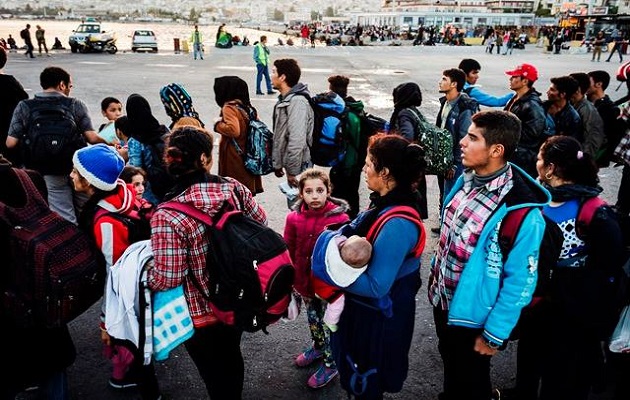UN approves the Global Compact for Safe, Orderly and Regular Migration
The pact “proposes a road map for cooperation that explicitly recognizes state sovereignty and governments’ rights to decide their own immigration policies”.
UN, Protestante Digital · MARRAKESH · 10 DECEMBER 2018 · 18:10 CET

The 165 countries gathered in Marrakesh for the United Nations Intergovernmental Conference on the Global Compact for Migration, have approved the Global Compact for Safe, Orderly and Regular Migration on Monday.
The United States, Israel, Australia, Hungary, Poland, Austria, Estonia, Bulgaria, the Czech Republic and the Dominican Republic have refused to sign the pact, citing concerns about migrant flows and national sovereignty.
NOT LEGALLY BINDING
The decision in Marrakesh is the culmination of nearly two years of consultations and negotiations to produce an accord to promote international cooperation in handling migration.
Since it is not legally binding, it just opens the door for global cooperation on migration. The pact is expected to be enacted at the UN General Assembly on December 19.
23 OBJECTIVES TO HELP MIGRATION
The Global Compact for Safe, Orderly and Regular Migration is a 34-page document, which asserts that “no state can address migration alone” and outlines 23 objectives.
Those objectives include “the collection of better data on the movement of migrants, the strengthening of legal paths to migration, efforts to combat human trafficking and cooperation to ease the safe return of migrants to their countries of origin”.
“It reflects the common understanding of the governments that migration that crosses borders is, by definition, an international phenomenon and that in order to effectively manage this global reality, cooperation is necessary", said the secretary general of the UN, António Guterres.
“A ROAD MAP FOR COOPERATION”
Guterres also dismissed the idea that the accord would force countries to adopt migrant-friendly laws and regulations, because the compact is not legally binding, but instead “proposes a road map for cooperation that explicitly recognizes state sovereignty and governments’ rights to decide their own immigration policies”.
Additionally, he said that “regulated migration is needed if developed countries are to maintain economic growth when they face declining birthrates and ageing populations”.
Coordinated action can also combat the high human cost of unregulated migration, which is exploited by predatory smugglers.
A HUMANITARIAN CRISIS
“More than 60,000 migrants have died in hazardous journeys while trying to reach wealthier countries. This is a source of collective shame”, he added.
Talking about those who refused to sign the agreement, the UN High Commissioner for Human Rights, Michelle Bachelet, pointed out that “many leaders, instead of leading and setting an example, prefer to look at the polls to see if people fear immigration”.
According to the United Nations, 3.4% of the world's population has undergone a migration process, that is, 250 million people, one in thirty human beings.
“It's a phenomenon that has increased so far. If we look at demographics and other factors, such as climate change, we are expected to see more people in transit”, explained the UN special representative for international migration, Louise Arbor.
FEREDE: “VERY POSITIVE AGREEMENT”
The Federation of Evangelical Religious Entities of Spain (FEREDE) has evaluated “very positively” the agreement announced by the UN.
In a statement issued on Monday, the entity said that it “believes the objectives of this agreement are essentially acceptable and attack this serious problem in a comprehensive and coordinated way”.
“As evangelical Christians, we believe that helping others, saving their lives and offering protection to those fleeing from deadly wars, persecutions, famines and natural catastrophes, is an inescapable human and Christian obligation, which must be above all other considerations and interests”, the Federation added.
Published in: Evangelical Focus - world - UN approves the Global Compact for Safe, Orderly and Regular Migration
